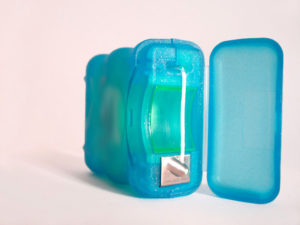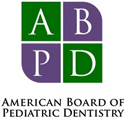30315 Pediatric Dentist
 An injury to your mouth can be a painful, expensive experience. For athletes, mouth and tooth injuries are a very real risk. Mouthguards are an excellent tool for protecting your mouth from injury and harm. Our team can help you find a solution that protects your teeth while you play.
An injury to your mouth can be a painful, expensive experience. For athletes, mouth and tooth injuries are a very real risk. Mouthguards are an excellent tool for protecting your mouth from injury and harm. Our team can help you find a solution that protects your teeth while you play.
Why Wear a Mouthguard?
Mouthguards protect your teeth. For athletes, injuries to the mouth can cause cracked teeth, or even worse, missing teeth. Additionally, your mouth is mostly made up of soft tissues, such as your tongue, inside cheeks, and lips. These areas can become injured or pierced when playing sports. Mouthguards help defend your mouth and teeth against such injuries.
Do All Athletes Need a Mouthguard?
Yes. High-contact sports such as hockey, wrestling, football, and boxing pose the greatest risk for mouth injuries. However, all athletes can benefit from being cautious. Gymnasts should consider wearing one to protect their mouth in the event of a fall. Baseball and basketball players should protect themselves from being injured by a ball or collision with another player. Mouthguards should be treated as a necessary piece of your athletic gear, no matter which sport you play.
Which Mouthguard Is the Most Effective?
Our team can help you during your next visit to our office. There are many options available, ranging from store-bought to custom-fitted mouthguards. We will work with you to determine which type of mouthguard is best for you. It is important that any guard fits properly.
If you are currently receiving orthodontic treatment, we may recommend a special type of mouthguard. Braces can puncture your mouth if impacted, particularly during sports. Our team will help you find a solution that works.
Prevention is the best solution to oral sports injuries. Contact our office and ask about finding a mouthguard that is right for you.
1039 Grant Street, Suite B11, Atlanta, GA 30315


 Between Halloween and Christmas, there are numerous tasty treats and foods to enjoy. For many people, food is the highlight of the holiday season. However, certain foods and candies are particularly damaging to your teeth. If you want to keep your smile looking healthy into the new year, here are some tips.
Between Halloween and Christmas, there are numerous tasty treats and foods to enjoy. For many people, food is the highlight of the holiday season. However, certain foods and candies are particularly damaging to your teeth. If you want to keep your smile looking healthy into the new year, here are some tips. How often does your child eat candy? According to a study conducted by the USDA Economic Research Service, children under 12 consume an average of 49 pounds of sugar in one year. While candy is not the sole source of sugar in a child’s diet, the impacts of sugary candy treats are particularly harmful to teeth. Here’s what you need to know about candy and how it might be damaging your child’s smile.
How often does your child eat candy? According to a study conducted by the USDA Economic Research Service, children under 12 consume an average of 49 pounds of sugar in one year. While candy is not the sole source of sugar in a child’s diet, the impacts of sugary candy treats are particularly harmful to teeth. Here’s what you need to know about candy and how it might be damaging your child’s smile. It has long been known that dairy products contain high amounts of calcium, which is important for developing and maintaining strong teeth and bones. However, not all dairy works in the same ways. Did you know that a recent study has found that cheese can actually help protect teeth against cavities?
It has long been known that dairy products contain high amounts of calcium, which is important for developing and maintaining strong teeth and bones. However, not all dairy works in the same ways. Did you know that a recent study has found that cheese can actually help protect teeth against cavities? Our convenient local dental office is featuring children’s dentistry services for families in our community. The American Dental Association recommends that all patients follow a routine of dental examinations at least every six months, or as directed by their dentist. This is particularly important for growing children.
Our convenient local dental office is featuring children’s dentistry services for families in our community. The American Dental Association recommends that all patients follow a routine of dental examinations at least every six months, or as directed by their dentist. This is particularly important for growing children.
 It is a common belief that teething causes secondary symptoms such as a runny nose, irritability, high fever, or problems with sleeping. However, studies have shown that these types of concerns are caused by health issues unrelated to teething. Here are some of the things to expect during teething, and some that are often attributed to teething, but are better discussed with your child’s doctor.
It is a common belief that teething causes secondary symptoms such as a runny nose, irritability, high fever, or problems with sleeping. However, studies have shown that these types of concerns are caused by health issues unrelated to teething. Here are some of the things to expect during teething, and some that are often attributed to teething, but are better discussed with your child’s doctor. Periodontal disease is a bacterial infection in the gums that can impact the teeth and jawbone if left unchecked. About half of all children suffer from periodontal disease. Fortunately, if identified and treated early, its effects can be managed and even reversed to allow your child to return to optimal oral health through adolescence and beyond.
Periodontal disease is a bacterial infection in the gums that can impact the teeth and jawbone if left unchecked. About half of all children suffer from periodontal disease. Fortunately, if identified and treated early, its effects can be managed and even reversed to allow your child to return to optimal oral health through adolescence and beyond. Our patients love visiting our office. We make it a priority to make sure every child feels safe and comfortable when visiting us. We focus on keeping your children educated and happy with their oral health. Below are a few tips on how to make your child comfortable while visiting the dentist.
Our patients love visiting our office. We make it a priority to make sure every child feels safe and comfortable when visiting us. We focus on keeping your children educated and happy with their oral health. Below are a few tips on how to make your child comfortable while visiting the dentist. We’ve all been told at least once in our life that flossing daily is crucial. Here are four reasons why flossing may be beneficial for your oral health routine:
We’ve all been told at least once in our life that flossing daily is crucial. Here are four reasons why flossing may be beneficial for your oral health routine:

